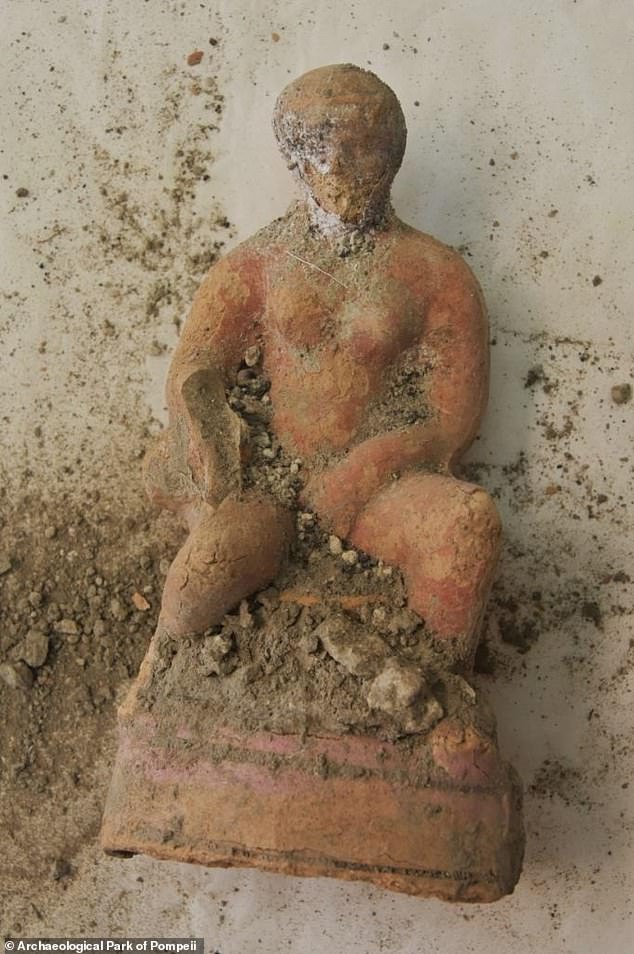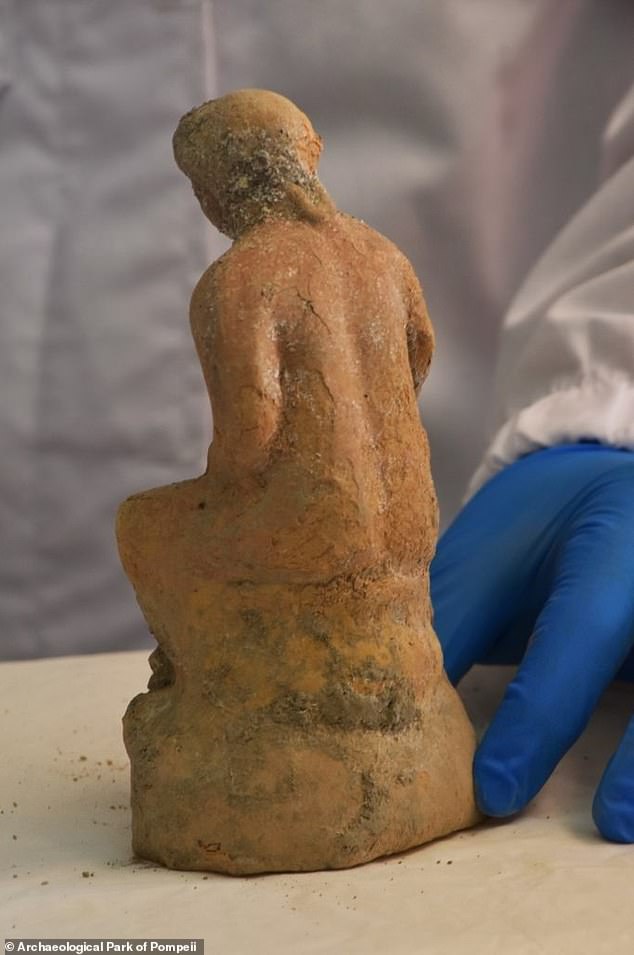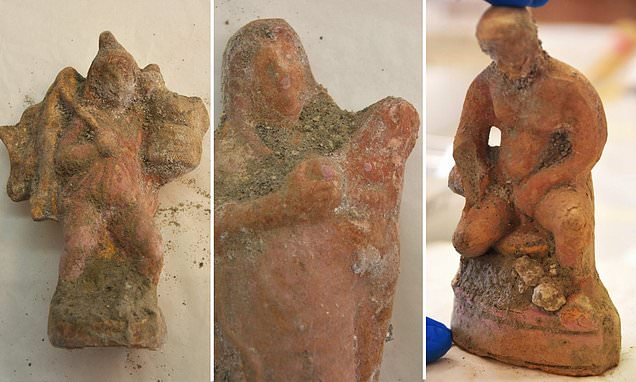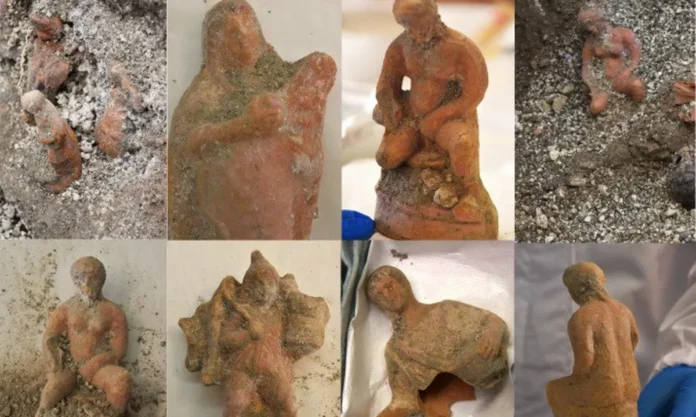The ancient city of Pompeii has long been a source of fascination for historians, archaeologists, and the general public alike. Buried under the ash and debris of Mount Vesuvius’ catastrophic eruption in 79 AD, Pompeii has continued to yield remarkable insights into the daily lives and cultural practices of its former inhabitants. The recent discovery of thirteen Nativity-style statuettes amid the ruins has once again sparked intrigue, as experts suggest these artifacts provide evidence of pagan ritual traditions in the ancient Roman city.
Nativity-style Statuettes: A Pagan Tradition

The terracotta sculptures, found in an upright position on what was likely a shelf in the hallway of a Pompeian home, are a testament to the diverse religious and cultural practices that thrived in the ancient city. While Christmas mangers were, of course, not a part of the pagan tradition in Pompeii, the arrangement of the statuettes suggests they were used as part of a pagan ritual.
Uncovering the Mythological Symbolism
Among the discovered artifacts, some of the pieces appear to pay tribute to the myth of the cult goddess Cybele and her tragic love, Attis. Other sculptures depict a variety of symbolic elements, including the head of a cockerel, an almond, a walnut, and a pine cone. These mythological references provide insight into the complex and multifaceted belief systems that were practiced in Pompeii.
The Hallway of Ritual

The hallway in which the Nativity-style statuettes were found also contained decorative elements on the walls, further suggesting the space was used for some form of ritual or ceremonial purpose. The proximity of these artifacts to the House of Leda and the Swan, a domus known for its sensual fresco depicting a Greek myth, underscores the blending of pagan and Greco-Roman influences in Pompeian culture.
Expanding the Archaeological Landscape of Pompeii

The discovery of the Nativity-style statuettes is just one of the many recent archaeological findings that have continued to expand our understanding of life in ancient Pompeii. Earlier this month, a cramped bakery where enslaved people were imprisoned and exploited was found as part of a home in the Regio IX area of the archaeological park.
In May, the remains of two individuals believed to have been killed by an earthquake that accompanied the volcanic eruption were discovered in the Insula dei Casti Amanti, or Insula of the Chaste Lovers. And in June, a striking still-life fresco resembling a pizza was found on the wall of what is thought to have been the hallway of a home with a bakery annex.
Conclusion
The discovery of the Nativity-style statuettes in Pompeii serves as a poignant reminder of the rich cultural diversity and complex religious practices that thrived in the ancient Roman city. As excavations and research continue, these archaeological finds provide us with an increasingly nuanced understanding of the daily lives, beliefs, and traditions of Pompeii’s inhabitants, shedding light on the vibrant and multifaceted nature of this long-lost civilization.
